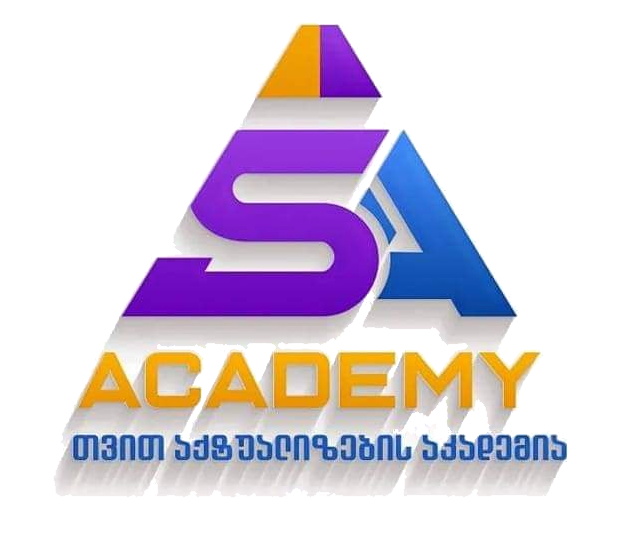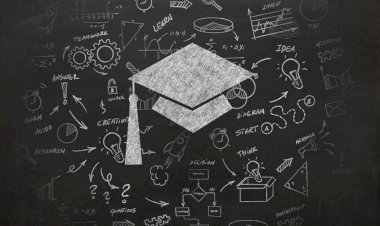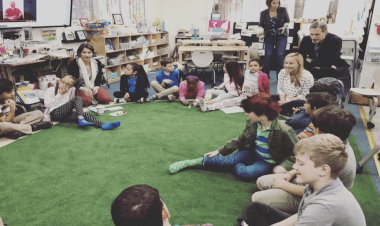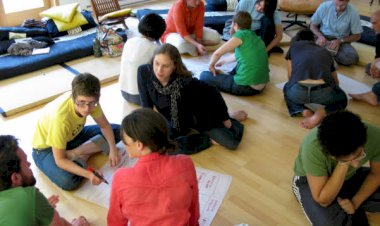Concept of Self-Actualization in the Management of Education
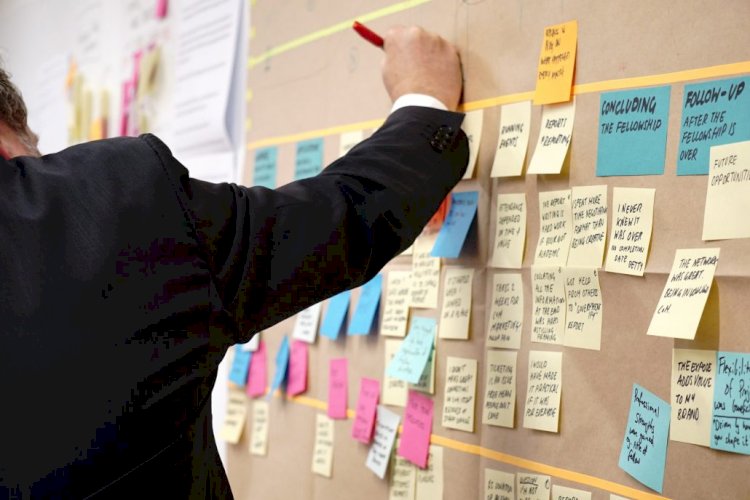
Author: Nana Aleksidze, Doctor of Science of Education
Source: Georgian Foundation for Development of Sciences and Society, International Scientific Journal, 2(55), ISSN 1512-0333
Abstract
There always was the question of essence of human life. The healthy person was always troubled by the question: “Who I am”? Only education can awake the hidden potentials and transfer the mere human into the high human being by giving them healthy knowledge. One can change everything for one’s own good by means of good and person centric education. Management of human centric education creating sound individuals and relevant society is ultimately the future guarantee of the better world. In order to show the main mission of our research we needed not only the theoretical aspect to indicate but also the real research on the subject. In this case we used two kinds of research methods: The Delphi Method and the interview. Educators should make something new and something strong on the basis of that challenge which our modern era offers.
Key words
- Self-actualization
- Self-Realization
- Education and Educational Management
Introduction
The problem of self-actualization among students is relevant. All the teachers, lecturers and professors should think how to motivate them and how to increase their ability of getting and perceiving knowledge, skills through the most basic means- maintaining and discovering their potentials. There are different ways and methods to reach to it. According to Abraham Maslow the theory of self-realization can be learned and used in practice. My research and my way of management of education can prove this as it is relayed on the excellent theory of Abraham Maslow.
The role and significance of the education is as high and superior as the goal it serves, to help to find the truth through the immense information and activities, to assist to find humans’ own “selves” and to actualize them to be self –Realized. Only education can awake the hidden potentials and transfer the mere human into the high human being by giving them healthy knowledge and creating them as healthy, sensible, reasonable human beings with intense and endless human recourses. The target object of the education is the human and its recourses. If we count the humans as the highest creatures upon the other creatures in the nature, than there is no doubt that the role, responsibility and significance of education is much higher than one can imagine.
The importance of education was actual in almost every period of our era, but in the modern, temporary reality, where the only centre is a person the most significant challenge is to find out our role in our life, our mission and potentials- intense aspiration towards discovering and uncovering something hidden, yet undiscovered, even mystic, to form ourselves as the high humans, “fully humans”(Maslow, 1970) by the nonstop motion towards self-actualization.
As great is the role of education also solid is the responsibly how to direct the process of education. There rises the significance and necessity of good, sound and relevant, appropriate management of education. Management which guarantees the result, to help youngsters be self realized through the process of self actualization.
As for realization, one thing is undoubtful, that the mankind, nations and people don’t exist alone, separately, but they are realized and actualized in those circle what we call society or even community. In every period of our era there was one ultimate and absolute necessity of highly sensible humans, need of creating society psychologically and physically healthy and not only creating but keeping them and making more! The selfness, the mood, the esteem and personality is realized according to that environment where one lives. Environment is not only the outer space but those people and individuals, those motions and actions they do, examples from others. All together with habits and traditions which play greater role in realization of the human being. In spite of all these, humans are not unchangeable; one can change everything for one’s own good by means of right and person centric education. Education which aside all the traditions and so on, can give the youngsters free choice of the future actions and helps them create their own goals and missions.
Furthermore the healthy society is the guarantee of the sound consequences as those sensible results favor the reasonable atmosphere in the countries and in the world. As the goal , yet called vision is so important and vital, the way of getting it is far more significant , but planning it , deciding how to maintain it, is the most vital question now. One thing is obvious, that this goal won’t be achieved without the super need called self-actualization and self-realization.
In the contemporary world there appeared the only super mission, this is to make the human as the centre of the universe and to merit toward their transferring from mere, average people into fully humans, super human creatures. Abraham Maslow thinks that, that is a different philosophy among others existing before, philosophy of human nature-a new image of man, formed by a new general comprehensive philosophy of life. This new humanistic attitude or approach would appear in a new and far more hopeful and encouraging way of conceiving any and every area of human knowledge. “Hopeful way” (Maslow, 1970) of human knowledge coincides the process and perceiving information or discovering and uncovering new or already existed old in a new way. This is education- the indispensible mean of “self growth”. The search for identity means very much the same thing as does “becoming what one true is” (Maslow, 1970). As does also becoming “fully –functioning” or “fully –human” (Maslow, 1970), or individuated, or authentically oneself. Now we can see the real goal of education, obviously, a central task here is to become aware of what one is, to assist pupil to get aware of this, what one is biologically, temperamentally, constitutionally. To become conscious of one’s goals.
Idea development: how to use the theory of self actualization in pedagogy
Humans have the great potential to see, to have vision and to aspire toward its realization through the means of one’s own –self realization.
Knowledge is transferred and received though the channel called education with its supreme goal-the goal to educate humanity, to help them to find the truth through the immense information and activities, to assist them find their own “selves” and to actualize them to be self –Realized. There rises the significance and necessity of good, sound and relevant, appropriate management of education. Management which guarantees the result, this is the only mean implying the other aims, to help youngsters be self realized through the process of self actualization.
The main idea of our research is show the immense role of the education in the crucial aspect of the human life, in their self actualization process and in their ultimate result – to be self realized. In order to maintain this role and take the significance place in this process, education need changes, changes in good, to be more wide in terms of not only knowledge transferring but in terms of human centric aspects. These changes and transformations should not be received without maintaining sound and relevant management of education.
The notion of self-motivation, its role and significance is immense and even tremendous, among youngsters, in their yet inexperienced life which is the most appropriate base of using to the favor of reaching the main goal.
According to Abraham Maslow, the only definition of the meaningful life that they can think of is to be lacking something essential and to striving for it. Necessity of society’s being perfect, to be attentive, to those blessings that are given to us for granted and for some reason we don’t not take them into consideration any more. Knowledge though the education means arming the person with those abilities, paradigms and approaches which develop the hidden , invisible and even buried intellects and potentials, one can more vividly and precisely see himself, others and the universe. In this matter there is no other alternative but Education.
One can change everything for one’s own good by means of right and person centric education. Education which aside all the traditions and so on can give the youngster free choice of future actions and helps them create their own goals and missions.
The notion of self-motivation, its role and significance is immense and even tremendous, among youngsters. They are in that level of age, where education is more vital and takes solid “place” in their life and is even crucial for their future. Again greater is the role of stimuli of giving and getting the education, perceiving and analyzing the information, the environment where the process is conducted, the people as educators, the information itself and the way of giving them, right people to right target object, in right place and time. All these aspect should be unified in one whole, to be in harmonic interconnection, where ideal would be of far more higher concept, than the antagonistic elements, as how much the education is or will be perfect with all its features, so much will be chance and effect to reach to that super mission called self realization and self actualization.
According to Abraham Maslow’s “self realization hierarchy” (Maslow, 1970), the need of the healthy person is divided into two parts or groups: Physical need and Psychological need. Abraham Maslow attempted to synthesize a large body of research related to human motivation. Prior to Maslow, researchers generally focused separately on such factors as biology, achievement, or power to explain what energizes, directs and sustains human behavior. Maslow posited a hierarchy of human needs based on two grouping as mentioned: deficiency needs and growth needs. Within the deficiency needs, each lower need must be met before moving to the next higher level. Once each of these needs has been satisfied, if at some future time a deficiency is detected, the individual will act to remove the deficiency.
Chief dynamic principle animating this organization is the emergence in the healthy person of less potent needs upon gratification of the more potent ones. The psychological needs, when unsatisfied, dominate the organism.
From this search we can develop the hypothecs that youngsters are mostly on the third stage of Maslow’s hierarchy, as they are yet depended on their parents or so, they have their psychological needs gratified, they have food, safety and love considering their family life. From this point of view they-youngsters can continue toward the fourth stage, esteem needs: to achieve and gain approval, to be competent, how they can achieve or gratify this? Of course, the role of the family is uncontested and undeniable, but education has much more or at least no less role and vitality in it. So there rises a question: what should be done in education for not only to gratify esteem need but also to simulate youngsters to yearn for other higher need gratifications as to be ultimately self-actualized and self-realized? By realization one’s potential and transferring to the highest level called self-transcendence, as to discover and realize their own potentials, to uncover and follow their calling, to break the border of ego limitation, to be fully human.
Problem statement:
The healthy person with vivid views and thinking was always troubled by the questions: “Who I am”; “What is my fire within?” and etc. According to Abraham Maslow, the average, normal , well adjusted person often has not slightest idea of what he is of what he wants, of what his own opinions are. Motivational life of self actualizing people is not only quantitatively different but also qualitatively different from that of ordinary people.
Why does a person need education? Why does he need a high education? Probably the first answer to strike to one’s mind would be to get success as because of being something or somebody in life. But what it is the most important is that humans are creatures with great potentials and they are yearned for realizing it either consciously or unconsciously.
All people are oriented to the ultimate success, especially youngsters, but this is much depended on their values, their self-me, their self discipline, their habits and features, their desires and decisions. As it is said: process of studying is hard at the beginning but at the end it is wonderful, the end –the result is much depended on the humans themselves.
Educators should stress and emphasize the significance of creating the right and healthy paradigm of the personal growth. They should make the whole scheme and plan of the process to achieve this. They should make something new and something strong on the basis of that challenge which our modern era offers.
To what does it lead us? To the ultimate goal to be self actualized. In the process of education we should show the difference to the youngsters what is to be an average and what is to be Self Actualized person. Free choice aspect should be highly protected and maintained.
Another question may occur- to what aspect does it become useful and desirable to the others, to the society? The answer is relationship. As we see the Self Actualized people have the great ability to build and keep sound and healthy relationship on the basis of their healthy approach and attitude toward reality and towards others.
Education should lead us to the main goal; to get that feature of Self Actualized people what we may call eager to learn every time. As according to Maslow Self Actualized people quite well aware of how little they know in comparison with what could be known and what is known by others. So to lead youngsters to get aware of their knowledge and never stop being more and more educated.
It is also too important to mention that Self Actualized people gain the synergy of their heart and head, instinct and reason, cognition and conations.
And yet there is also other regressive, fearful self-diminishing tendencies s well, and it is very easy to forget them in our intoxication with “personal growth” especially for inexperienced youngsters.
This exchange of old satisfiers for new ones involves many tertiary consequences. Thus there are changes in interests. This is the same as saying that there are changes in human values. In general there tend to be:
- Overestimation of the suppliers of education.
- Underestimation or even devaluation of the satisfiers of the needs already gratified (and of the strength of the needs.
With this change of values go changes of cognitive capacities: attention, perception, learning, remembering, forgetting, thinking, all are changed in a crudely predictable direction because of the new interest and values of the organism. In a word, we tend to take for granted the blessings we already have, especially if we don’t have to work or struggle for them.
Educators are the mediators and should comprise not only teachers, lecturers, tutors and etc. but also psychologists too, as these questions are pure psychological. Without attempting any detailed discussion at this time, Maslow would tentatively suggest what can be described as character by learning, or intrinsic learning, which takes as its centering point changes in the character structure rather than in behavior.
Research methodology and research problem
In order to show the main mission of our research we needed not only the theoretical aspect to indicate but also the real research on the subject. In this case we used two kinds of research methods: The Delphi Method and the interview.
The research was conducted through the means of interview and the target of the research was youngsters aged between 20-25. Depended on the answers they made we can openly and directly say that almost 100% of them stress the supremacy of the education role in the person’s self actualizing process and again almost 100% think that there should be right changes in the education management in this aspect .
The problem which occurred during the research was people’s attitude towards self realization and its essence. Almost all of them considered themselves self realized but of course they could not make the distinct definition what it was.
Problem solving
Educators should make something new and something strong on the basis of that challenge which our modern era offers. The challenge of creating the new portrait of an individual by fully involvement of those individuals in the process can be effective tool in the self actualization. They should be ready reaching it, step by step with the help of education and their healthy knowledge based on the healthy and sound conceptions.
The challenge called “giving free choice “ plays the greater role in this matter, this is not only the challenge but also the human right as we are free with our choices and responsibilities at some cases but we are not free with the results after making the choices.
According to Maslow, people can choose in accordance with their own taste and appetite, their character of judgment, the youngster chooses the motivation to which he will attribute the behavior accord with his generalized optimism or pessimism.
As we can see there can be several sub goals:
- Striving to Self actualization within the educational channels.
- Maintaining sound and healthy relationship.
- Assisting youngsters to find and to know well their “Own Self”.
- Maintaining the self deciding ability.
- Being more and more educated.
- Having ability to concentrate to the result.
- Letting them maintain their own healthy interpretation of life and have their own vision.
- Explaining what is synergy and to help them maintain this feature.
To assist youngsters to achieve these goals and ultimately be self actualized, psychologists should together with teachers consider not only pupils behavioral aspects but their ability and potential. According to Abraham Maslow, we can’t avoid the fact of individual differences we will have to learn to think of them in a new way.
On the basis of my research I have the several recommendations:
- Educational process should maintain right ways to prosper the hidden potentials in every pupil.
- Educators should make the relevant environment for proper perception of the reality.
- Education should motivate pupils to ask the most important questions to them and to find the answers.
- Educators should consider the individual differences and to make the right border between common and individualism.
- Education should be person centric.
Conclusion
Depending on all the above mentioned we can conclude that Knowledge itself means arming the person with those abilities, paradigms and approaches which develop the hidden , invisible and even buried intellects and potentials, one can more vividly and precisely see himself, others and the universe. In this matter there is no other alternative but Education.
One can change everything for one’s own good by means of right and person centric education. Education which aside all the traditions and so on can give the youngster free choice of future actions and helps them create their own goals and missions. Furthermore the healthy society is the guarantee of the sound consequences as those reasonable results favor the harmonic atmosphere in the countries and in the world.
Bibliography:
Maslow, A., H., (1970), motivation and personality, Reprinted from the English Edition by Harper & ow, Publishers, http://s-f-walker.org.uk/pubsebooks/pdfs/Motivation_and_Personality.
Pipia, K., Bankalashvili, K.,(2015), The importance of parental involvement in school development in Georgia (case of private school “logos”), ,Journal of education, , http://journal.ibsu.edu.ge/
Krajka, J., (2015), Towards Target Language Awareness of English Language Teachers - Three Stories of Teacher Education Projects, Journal of education, , http://journal.ibsu.edu.ge/
Mikeladze, T., (2015), Adult Language Instruction in Liberal Adult Education Institutions in Finland, Journal of education, http://journal.ibsu.edu.ge/
Shioshvili, T., (2015), Approaches for Examining Moral Issues (American Case), Journal of education, , http://journal.ibsu.edu.ge/
Tarmo, A., Bevins, S.,(2016), Pre-service science teachers’ epistemological beliefs and teaching reforms in Tanzania, cogent education, http://www.tandfonline.com
Confait, S., (2015), Beginning teachers’ challenges in their pursuit of effective teaching practices, cogent education, http://www.tandfonline.com
Usher, W.,et all, (2016), Taking the ‘physical’ out of physical education, cogent education, http://www.tandfonline.com
Detta, R.,et all, (2016), Community garden: A bridging program between formal and informal learning, Cogent Education, http://www.tandfonline.com
Gitler, C., (2016), Embracing the complexity of educational programmes, Cogent Education, http://www.tandfonline.com
Kearney, S., et all, (2016), What happens when induction goes wrong: Case studies from the field, Cogent Education, http://www.tandfonline.com
Riley, G., et all, (2016), The role of self-determination theory and cognitive evaluation theory in home education, Cogent Education, http://www.tandfonline.com
Murray, W., J., et all, (2016), Student collaboration in the undergraduate classroom, Cogent Education, http://www.tandfonline.com
Dost, G., T., et all, (2016), Preparing linguistically responsive teachers through experiential foreign language tasks: A phenomenological study, Cogent Education, http://www.tandfonline.com
Monfared, A., et all, (2016), Where the difference lies: Teachers’ perceptions toward cultural content of ELT books in three circles of world Englishes, Cogent Education, http://www.tandfonline.com
Dunlp, K., et all, (2016), Diving into data: Developing the capacity for data literacy in teacher education, cogent Education, http://www.tandfonline.com.
Sherman, P., D., et all, (2016), Value creating education and the Capability Approach: A comparative analysis of Soka education’s facility to promote well-being and social justice, Cogent Education, http://www.tandfonline.com
Ewing, B., et all, (2016), The identification of teaching interactions used in one-to-one teaching of number in the early years of schooling, Cogent Education, http://www.tandfonline.com.
Mintrom, M., et all, (2014), Creating cultures of excellence: Strategies and outcomes, cogent education, http://www.tandfonline.com
